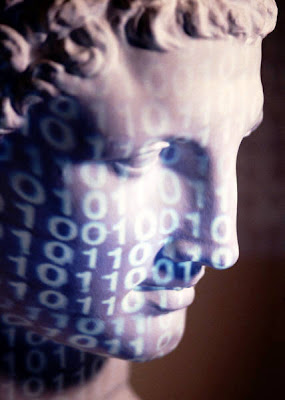The Millennial Generation has Progressive Politics in Mind
 School has started and, as it happens in my classes, we get to discuss current events and the important issues facing our country. There are some worrisome signs and some encouraging ones. Worrisome in the sense that people in fear or in crisis may react in ways that actually change those conditions (or the reasons) that made our country great. This new generation is not immune from this threat. For example, there isn't an urgency (as much as I'd like to see anyway) regarding the incremental intrusions into our civil liberties by our government in the name of national security. Young people, by definition, haven't had the experiences of the past, thus, serious abuses [like the interment of US citizens of Japanese ancestry, the McCarthy witch-hunts, etc.] haven't been felt, while the current ones haven't sank in yet.
School has started and, as it happens in my classes, we get to discuss current events and the important issues facing our country. There are some worrisome signs and some encouraging ones. Worrisome in the sense that people in fear or in crisis may react in ways that actually change those conditions (or the reasons) that made our country great. This new generation is not immune from this threat. For example, there isn't an urgency (as much as I'd like to see anyway) regarding the incremental intrusions into our civil liberties by our government in the name of national security. Young people, by definition, haven't had the experiences of the past, thus, serious abuses [like the interment of US citizens of Japanese ancestry, the McCarthy witch-hunts, etc.] haven't been felt, while the current ones haven't sank in yet.
Yet, over all, I think the millennium (or millennial) generation--those who come of age at the cusp of the new century--is probably more promising than the one that preceded it.
Every generation has to deal with important issues and big challenges, but this one is marked by the "war on terror" which includes the attacks on 9-11, and the Bush presidency. I believe that the country made a terrible mistake by giving power to this small man--most likely the worst president in US history--because the bad policies of his administration will haunt this & future generations. It was a missed opportunity for America to start the new millennium on the right path and sensible plans for the future. Instead, the new president will have no margin for error in foreign & domestic policies. It seems that every generation, 25 years or so, the US does something really stupid. It's up to the millennials not to repeat the mistakes of the past. The younger people tend to have more progressive attitudes; the Democrats may benefit from this trend.
The younger people tend to have more progressive attitudes; the Democrats may benefit from this trend.
I do think that our politics is equally dominated by personalities as much as people's party affiliation and ideology. However, the basic core ideological tenets--or, if you like, the pursued public policies--as expressed by our two major political groups Democrats & Republicans. The Democratic agenda has found a wider acceptance among the younger (under 30) US citizens.
Take a look at the chart [produced by Democracy Corps; its site has more info], and check out the Harvard Institute of Politics polling data [here, in pdf]. If you want to read more about the so-called millennials at the New Politics Institute, go here. [includes a pdf download on the progressive attitudes of younger Americans]
This millennial generation is trending away from the Republican party. As things stand today in the presidential field, the Republican candidates couldn't be farther from the core preferences of this generation. Of course, the Republican primary voters are a different beast, so the candidates obviously reflect this sentiment over all. Although, even within the broader Republican base, the presidential candidates are out of touch when it comes to ending the failed occupation in Iraq.
Several conservatives have replied that younger people always tend to be more radical until they ..grow up. I don't subscribe to this theory. People can change their minds at any time--depending on the circumstances, life experiences, availability of leadership, etc. However, certain core beliefs are formed rather earlier in a person's life. If, say, people under 30 believe that same-sex marriage is OK, I don't see why they'd change their mind and support all those laws denying same rights to every American. Likewise, for a host of other issues, i.e., the environment, heath care, education, etc. We also know that if a person votes for a particular political party 3 times or more before he/she's 30, they stay with this party in the years to come.
Next year, the Millennial voters will be 50 million. By 2016, they'll be 1/3 of the electorate. I am a liberal-progressive not because I happened to pick a team and sticking with it, but because it makes sense. Many of the issues we're facing today could be easily solved if more people used sense and an analytical mind instead of following their ..gut. Wanting to believe in something [yeah, we've all been there.... Remember failed relationships?] when all evidence pointed to the opposite direction, or, when people just accept something that makes them feel good without any supporting evidence.
Anyway, the bottom line: there's ground for optimism, much of it comes from the signs that Millenials are civic-minded, politically engaged, and hold values long associated with progressives, such as concern about economic inequalities, smarter & multilateral foreign policy, and that government can be an instrument for a fairer society. [from the New Politics Institute]















